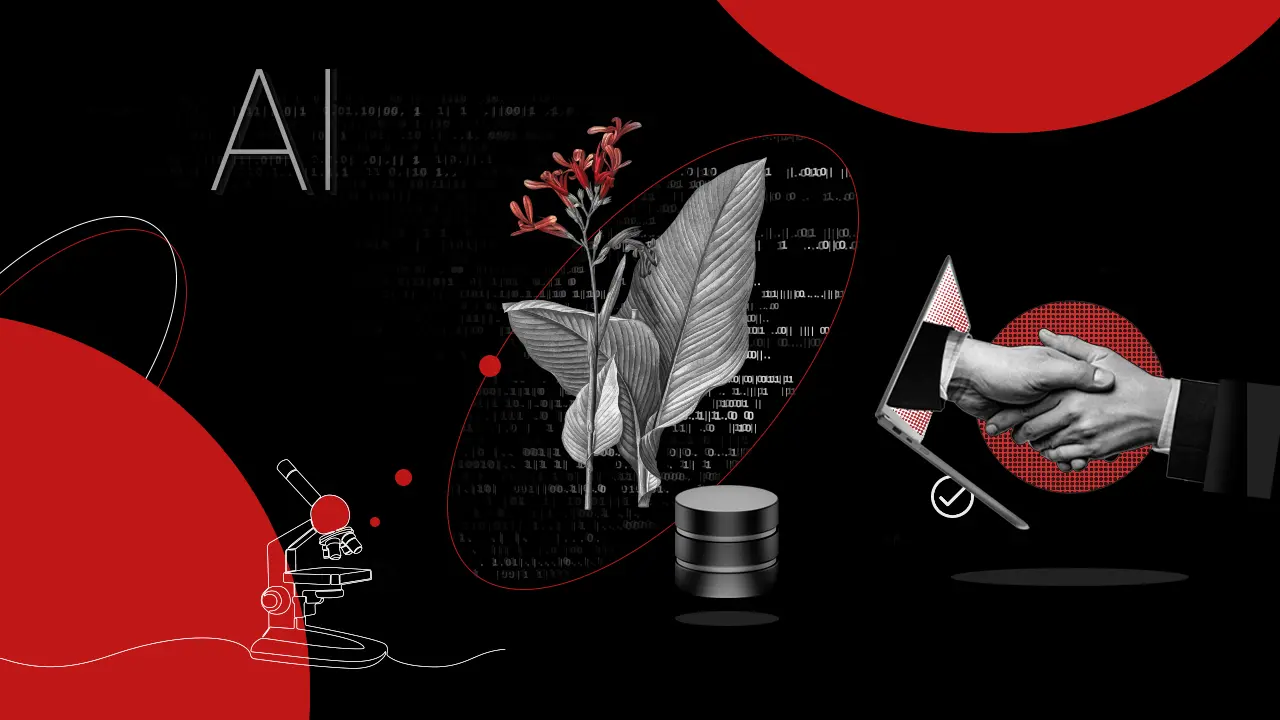In the ever-evolving landscape of scientific discovery and innovation, the integration of artificial intelligence stands as a beacon of promise, offering unparalleled opportunities to drive progress and effect positive for people, the planet and pets. Yet, as we delve into the complexities of AI adoption, it becomes evident that success, speed and scale hinge not only on technological prowess but also on a fundamental shift in mindset and approach.
With more than 70 AI-driven projects and counting, we’ve identified a common trajectory of challenges that get in the way of product innovation.
Embracing Imperfection: Redefining Data Readiness in the AI Era
Generative AI is generating hype like no other tech breakthrough in the last 20 years. Detractors and proponents are equally dismissive and ecstatic. Yet, the question remains. Are companies ready to introduce disruptive technologies in their value chain?
As our conversations reveal, the path to AI adoption is rarely linear and is characterized by a myriad of concerns ranging from data readiness, data integrity all the way to organizational facilitation and proper planning.
One common thread that binds these concerns is the fear of imperfection—the apprehension that existing datasets may fall short of the mark, or that organizational structures may not be conducive to AI integration.
PIPA Chief Commercial Officer, Eric Hamborg, highlights, “Perfection is not a prerequisite for progress; it is the willingness to embrace imperfection and forge ahead with confidence that sets the stage for transformative change in Health, Wellness and Nutrition.”
Practical Challenges: Matching strategic objectives to AI applications
Another common dilemma among organizations embarking on a digital transformation journey is recognizing the need for change but struggling to define the strategic objectives and their AI program requirements.
While a broad, largely undefined scope can be fertile ground for experimentation and breakthroughs occasionally, history tells us that a clear strategic plan for an AI project ensures a faster, linear path from inquiry to insight. At PIPA, we help our partners and customers crystallize their R&D and innovation initiatives in ways that are translatable to AI applications, i.e. turn a question or innovation objective into a problem statement that can be answered through a custom AI/ML and Bioinformatics analysis pipeline or through our autonomous R&D and innovation tools, LEAP™ and Ingredient Profiler.
Getting to the bottom of questions like the ones delineated below ensures that any venture into an AI-driven program can provide the highest business value and guarantee alignment with the strategic goals of the organization.
Business Objectives
- What are the business objectives the AI program seeks to support?
- How is the value of the AI project going to be measured?
- What are the commercial applications of this AI program and its outcomes?
- How is the system going to be integrated with existing technologies and processes?
- What are the IP ramifications and opportunities of this AI-driven program?
- How this program support or hinders the companies sustainability and ESR goals
Sustainability & Ethics
- Are ethical concerns regarding the program’s impact been thoroughly considered?
- How does this AI program impact employment & job displacement within the company and the sector at large?
- How will the AI system and the company going to mitigate possible risks of bias, discrimination and potential misuse?
- What measure will be taken to ensure the AI project is environmentally sustainable and with minimal carbon footprint?
Data & Insights
- How accessible and available proprietary & third-party data are in order to adequately fuel the AI-powered program
- What measures and processes are in place to ensure the 5 Vs of data, i.e. volume, velocity, variety, veracity and value?
- What is the data collection and curation process like? What are the data’s how these can be integrated with public information to extract valuable insights.
Catarina Abreu PharmaD, PIPA Head of Nutraceuticals, notes that after projects commence, unforeseen challenges arise, particularly in product development. These shifts necessitate multi-lateral flexibility and adaptability. PIPA’s approach is to remain agile, adjusting our strategy and solutions to meet evolving needs, ensuring continuous progress despite the changing landscape.
Empowering Partners with AI Solutions
Through state-of-art AI solutions and coupled with bespoke in-house pipelines, we offer our partners a roadmap to navigate the complexities of AI adoption with clarity and purpose. Our AI technology platform and solutions are designed not only to optimize processes and drive efficiencies but also to empower organizations to embrace a culture of rapid experimentation, and repeatable innovation. As we look into the future, the opportunities afforded by AI are boundless; at PIPA we’ve witnessed how AI can offer ten-fold productivity gains, save millions in R&D costs, and establish optimal processes that contribute to profitable and sustainable business growth all while offering better, healthier foods and solutions to consumers.
At PIPA, we aim to foster a culture of learning and dialogue within the industry, empowering organizations to embrace AI with confidence and clarity.
Let’s harness the power of AI to unlock new frontiers of innovation and build a brighter, healthier future for all. Learn more about our AI is transforming the Life Sciences, Food & Beverages and Ingredient sectors.
References:
https://www.goldmansachs.com/intelligence/pages/generative-ai-could-raise-global-gdp-by-7-percent.html
https://www.wired.com/story/amazons-cloud-boss-selipsky-generative-ai-hype/


